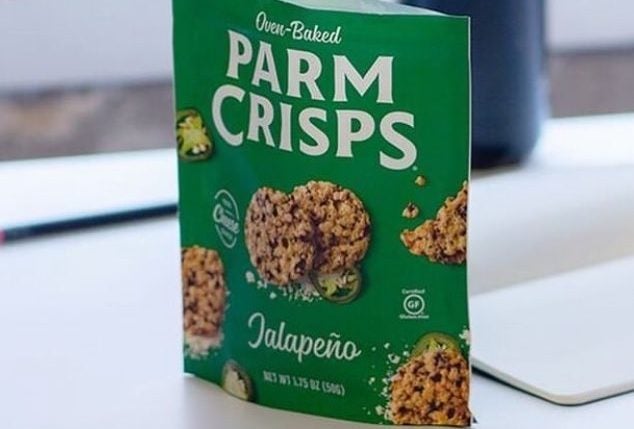
Hain Celestial has slumped to a quarterly loss related to an impairment charge on US snacks, prompting the better-for-you business to slash its outlook.
The New York-based company incurred a $156.6m non-cash impairment charge on its ParmCrisps snacks line and Thinsters cookie brand, partly resulting in a third-quarter net loss of $115.7m, compared to a $24.5m profit a year earlier.

Discover B2B Marketing That Performs
Combine business intelligence and editorial excellence to reach engaged professionals across 36 leading media platforms.
Hain Celestial acquired the brands late in 2021 from US business That’s How We Roll, paying $259m for the assets. New president and CEO Wendy Davidson blamed the downturn in ParmCrisps on a “significant loss of distribution” and also a decline in the related keto category – the brand is centred on the high protein, low-carb, low-sugar segment and also gluten-free.
Meanwhile, Thinsters was victim to “softness” in North American snacks, a term also applied to Hain’s tea and personal-care businesses. Consequently, group-wide net sales fell 9.5% in reported terms to $455.2m and, adjusted for foreign exchange, acquisitions and divestitures were down 5.8%.
The gross and adjusted EBITDA margins also both dropped, with the overall results coming in below market expectations.
“We have spent a fair amount of time scrutinising the assumptions that went into the acquisition and what has happened and transpired since,” Davidson said when asked what mistakes might have been made with the transaction struck under her predecessor, and now non-executive director, Mark Schiller.

US Tariffs are shifting - will you react or anticipate?
Don’t let policy changes catch you off guard. Stay proactive with real-time data and expert analysis.
By GlobalData“We believe in the better-for-you snacking category, absolutely. And this was a play in better-for-you snacking, certainly in high protein, so all of the consumer trends from that standpoint were correct,” she explained.
“Where we potentially got it wrong… one is the reliance on keto as a diet relative to ParmCrisps and the subsequent decline in the keto category. That gave some consumer headwinds that probably weren’t as acutely anticipated at the time of the acquisition.”
There was also “softness” elsewhere in Hain’s snacks portfolio.
“The Sensible Portions brand has been trending up double digits fiscal year-to-date, but trends slowed within the quarter due to competitive spending in brand building and promotion,” Davidson said.
“We pulled back on brand building, given supply chain impacts on service levels. With the supply chain challenges largely behind us, we are now just beginning to reinvest in brand building, in innovation and in-store promotions and are confident in the long-term growth outlook for this brand.”
Hain Celestial results “very disappointing” – analyst
John Baumgartner, a managing director at Japanese investment bank Mizuho Securities, described the results as “very disappointing”.
“Results confirmed our concerns that North America was at downside risk for H2 (driven by snacks softening), but results were even weaker-than-expected,” Baumgartner wrote in a research note.
“Further, a $157m impairment charge substantially for ParmCrisps and Thinsters (~60% of the purchase price), only acquired in December 2021, adds to the disappointment.”
Speaking to Just Food last month, Davidson outlined some of her strategy plans. Schiller’s policy was centred on whittling down SKUs to drive margins and profits.
“Are there things that we thought were going to be a bigger growth driver that are maybe more in a maintain [mode]? They’re important in the portfolio, they just won’t be an exponential driver of growth, but they’re an important part of generating fuel for the rest of the business,” she said in that interview.
Guidance was reaffirmed in February. The outlook for both sales and adjusted EBITDA, on a constant-currency basis, was kept at minus 1% to plus 4%.
But sales are now envisaged to be down 3-4% for the year and EBITDA to be 13-15% lower.
In the third quarter to 31 March, adjusted EBITDA in constant currency dropped to $39.3m from 58.7m, while the margin fell 340 basis points to 8.3%. The gross margin declined 160 points to 21.4%.
“While the company simplified its portfolio of brands over the last few years to categories with tremendous potential, we have yet to leverage our scale and our reach to enable the investment in capabilities and brand building necessary to generate sustained performance,” Davidson said on the call yesterday (9 May).
“We are committed to building a clear path to predictable, achievable and sustainable top- and bottom-line growth. And we see an opportunity for Hain to blend aspects of traditional CPG growth models with those of smaller disruptive brands to enable the growth of our better-for-you portfolio.”



